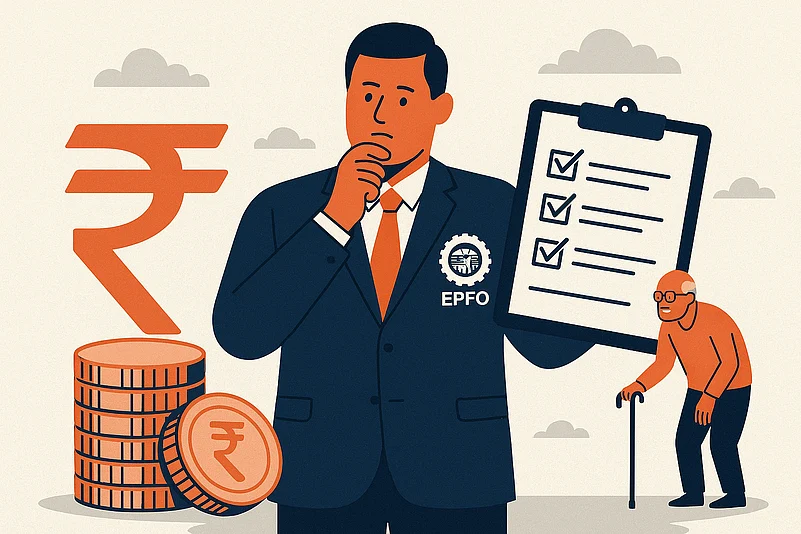
Summary of this article
EPFO to review long-pending revision of Rs 1,000 minimum monthly pension
Pensioners demand an increase to Rs 3,000 to Rs 5,000 amid rising living costs
Around 23 lakh EPS-95 beneficiaries await long-overdue financial relief
CBT meeting may approve first pension hike in over a decade
The Employees’ Provident Fund Organisation (EPFO) is finally taking a hard look at the long-pending issue of revising the Rs 1000 minimum monthly pension, a figure unchanged since 2014, according to a recent report by Financial Express. The matter is expected to come up at the next meeting of the Central Board of Trustees (CBT), which could pave the way for the first upward revision in more than a decade.
When the Rs 1000 minimum pension was introduced under the Employees’ Pension Scheme (EPS-95), it was seen as a small but crucial safety net for retirees in the organised sector. Over time, however, its real value has been steadily eroded by inflation. Rising costs of food, rent, and medicines have left many pensioners struggling to stretch their meagre income through the month.
Growing Pressure From Pensioners And Unions
Pensioners’ associations and labour groups have been pressing the government for years to revise the minimum pension to a more realistic amount. Their demand, pegged at Rs 3000 to Rs 5000 per month, has also been echoed by various parliamentary committees. Many have argued that Rs 1000 is simply not enough to sustain even a modest lifestyle in today’s economy.
While several rounds of discussions have taken place in the past, a final decision has been elusive. Budgetary pressures and fund sustainability concerns often stalled any upward revision. But officials familiar with the matter say the upcoming CBT meeting could mark a turning point. The board is expected to examine different models to balance financial viability with social responsibility.
At present, around 23 lakh pensioners receive benefits under EPS-95. A large number of them come from sectors where wages were historically low, such as textiles, mining, or small-scale industries. For this segment, even a modest increase in pension could mean greater comfort and a measure of dignity in their later years.
Balancing Relief With Fiscal Prudence
A pension revision, though necessary, will need careful financial planning. Experts say the fund’s sustainability will depend on whether the government agrees to enhance its share or if contribution ratios are adjusted to absorb the additional outflow. The Ministry of Labour and Employment is likely to study the fund’s long-term projections before endorsing any change.
Despite these fiscal constraints, there is a growing consensus that a revision is both overdue and socially necessary. India’s retired population is expanding, and life expectancy has improved. For lakhs of pensioners surviving on a bare minimum income, an increase could bring meaningful relief.
If the proposal is cleared in the upcoming CBT meeting, it will be the first real improvement to EPS-95 benefits in more than eleven years, a long and delayed recognition of the financial vulnerability of India’s senior citizens and their right to a more secure retirement.















